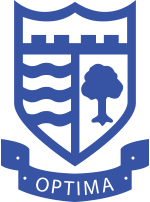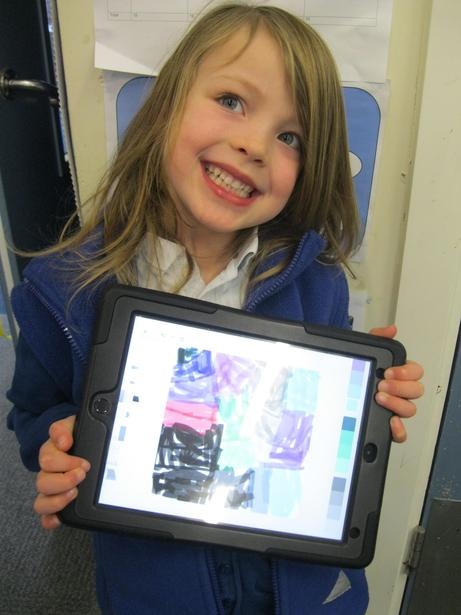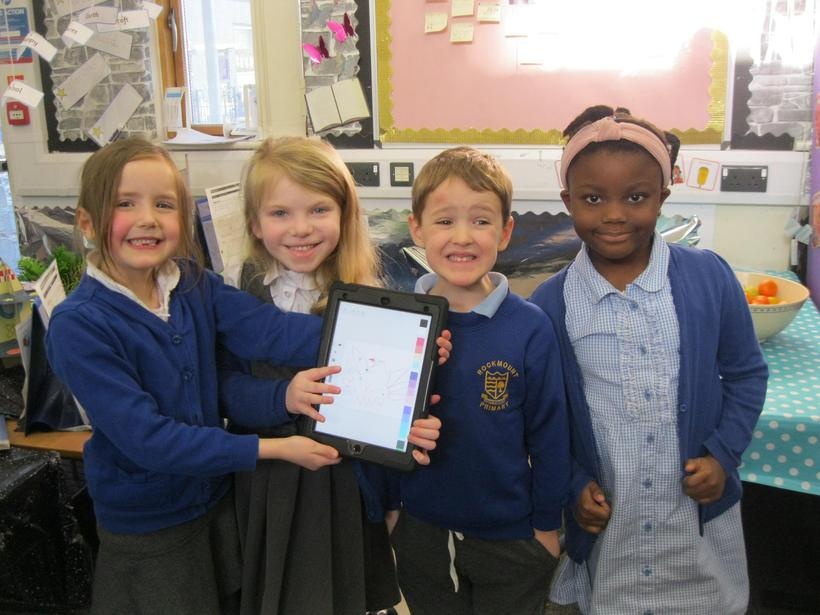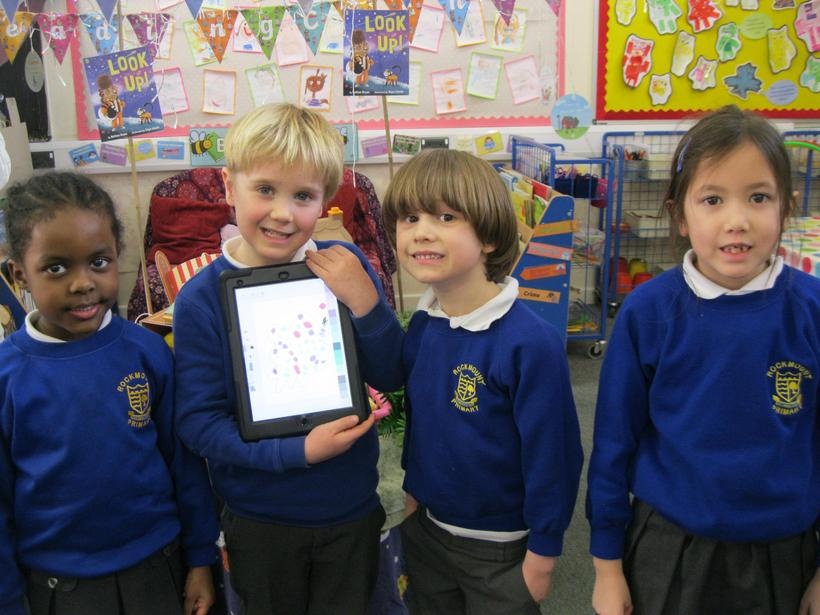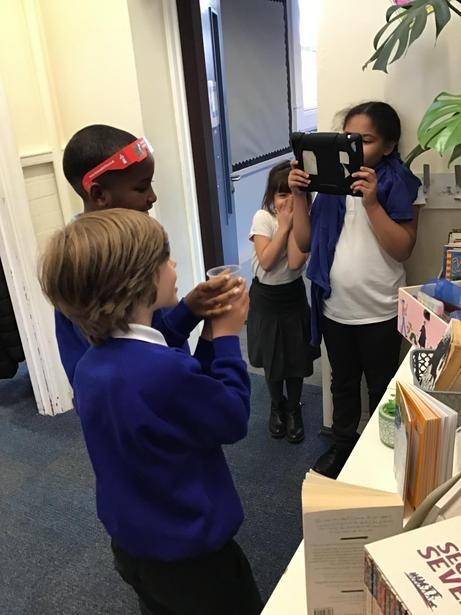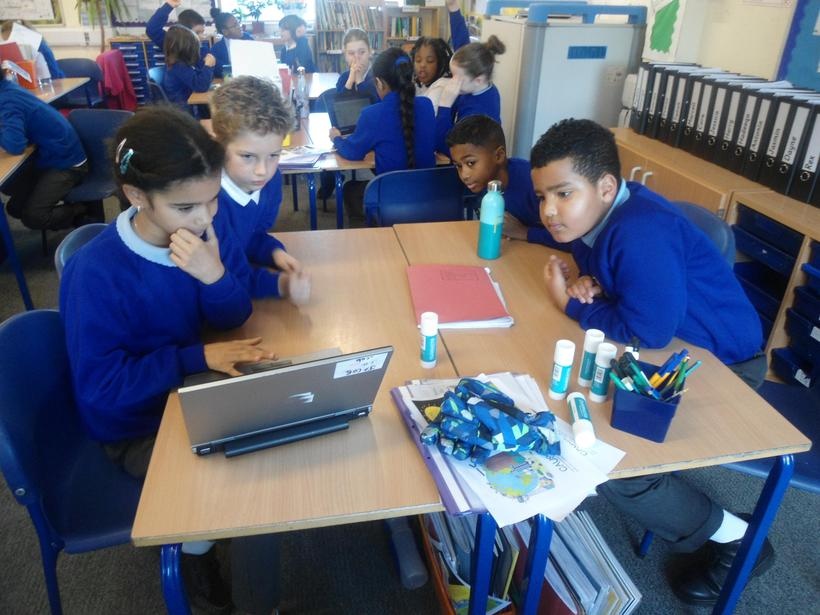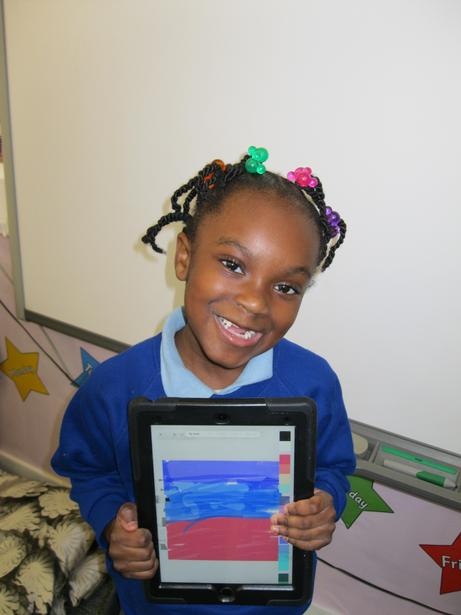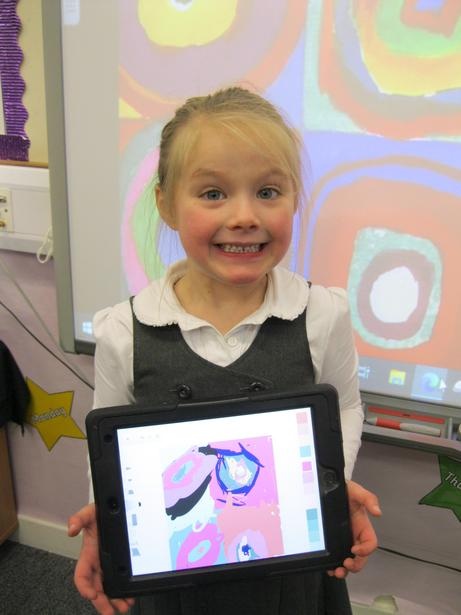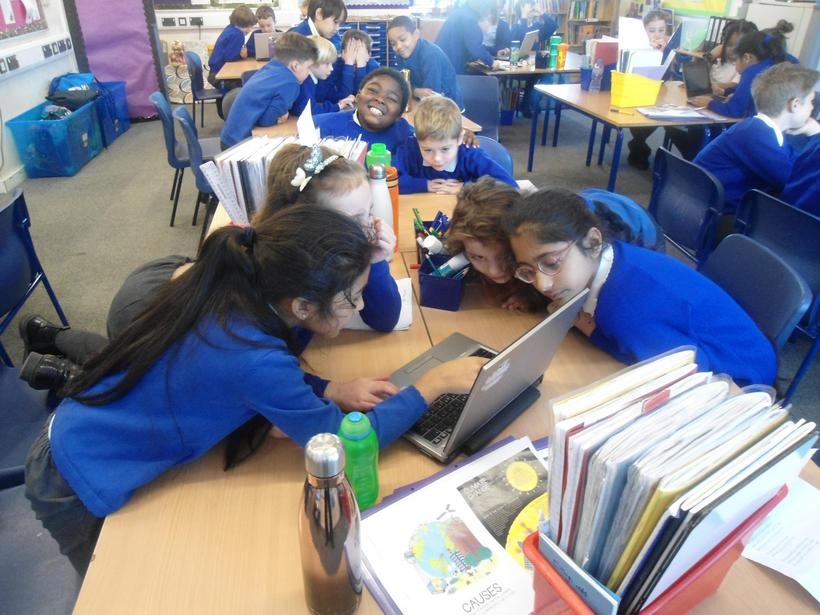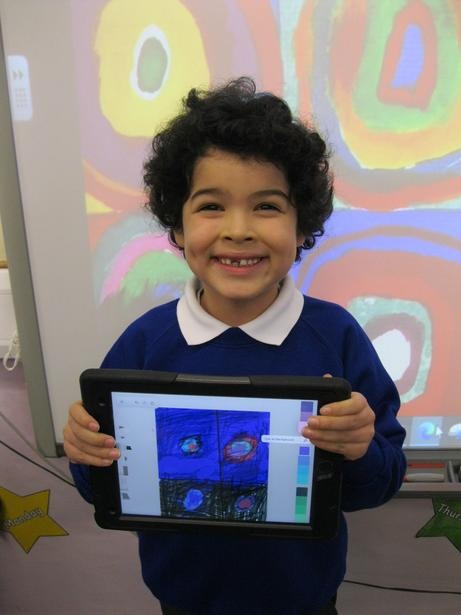Computing
Subject Overview
A high-quality computing education equips pupils to use computational thinking and creativity to understand and change the world. Computing has deep links with mathematics, science, and design and technology, and provides insights into both natural and artificial systems. The core of computing is computer science, in which pupils are taught the principles of information and computation, how digital systems work, and how to put this knowledge to use through programming. Building on this knowledge and understanding, pupils are equipped to use information technology to create programs, systems and a range of content. Computing also ensures that pupils become digitally literate – able to use, and express themselves and develop their ideas through, information and communication technology – at a level suitable for the future workplace and as active participants in a digital world.
Intent
At Rockmount Primary School we recognise that technology can allow pupils to share their learning in creative ways. We also understand the accessibility opportunities technology can provide for our pupils. Our knowledge rich curriculum has to be balanced with the opportunity for pupils to apply their knowledge creatively, which will in turn help our pupils become skilful computer scientists. We encourage staff to try to embed computing across the whole curriculum to make learning creative and accessible.
Implementation
- Teachers use the ‘Switched On: Computing’ scheme, published by Rising Stars, as a starting point for the planning of their computing lessons, which are often richly linked to engaging contexts in other subjects and topics. We have recently updated our resources to use the dynamically updated third edition.
- Knowledge and skills are mapped across each topic and year group to ensure systematic progression.
- We have sets of laptops and ipads to ensure that all year groups have the opportunity to use a range of devices and programs for many purposes across the wider curriculum, as well as in discrete computing lessons.
- We have some sessions led by specialists which enables the children access to specialist equipment.
- Employing cross-curricular links motivates pupils and supports them to make connections and remember the steps they have been taught.
The implementation of the curriculum also ensures a balanced coverage of computer science, information technology and digital literacy.
Impact
The impact of our computing curriculum can not only be seen in displays around school and on the children’s individual computer accounts, but also can be measured by speaking to the children themselves. The teaching of the computing curriculum enables our children to use a computer with confidence.
We measure the impact of our curriculum using the following methods:
- The way pupils showcase, share, celebrate and publish their work will best show the impact of our curriculum.
- Children’s work saved onto their individual accounts.
- Interviewing the pupils about their learning (pupil voice).
- We also look for evidence through reviewing pupil’s knowledge and skills digitally through tools like Google Drive.
- Children in Foundation Stage are assessed within Understand the World and their progress is tracked termly.
Spiritual, moral, social and cultural development and British Values
Collaborative work in Computing develops mutual respect for the differing opinions, beliefs and abilities of others. In addition, children develop a respect for the resources used and understand the importance of looking after them. They learn to appreciate the value of similarities and differences and learn to show tolerance. A variety of experiences teaches them to appreciate that all people and their views are equally important.
Children are encouraged to work in a democratic way, exercising the ‘give and take’ required for successful teamwork, this is particularly true of topics which require children to work in groups to research or to design and create a product. Computing also enables children to appreciate the importance of staying safe online and respecting others.
Safe and Responsible Use
E-safety is a fundamental element of computing teaching and technology use at Rockmount Primary School. The school has a separate E-Safety policy, and E-Safety sessions take place regularly in each year group as part of both computing and PSHE sessions
There was an error processing this link (the page was not found).
Curriculum Map
Golden Threads
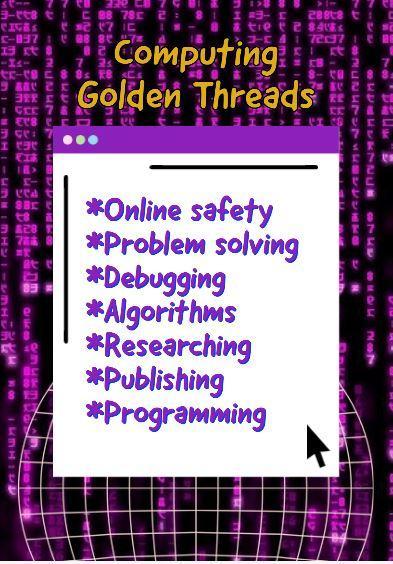
Pupil Voice
"I love taking turns when we play games on the white board; it's a really fun way to learn."
Year 1 child
"I like computers, so these lessons are really fun."
Year 2 child
"I always can't wait to find out what we will be learning next."
Year 3 child
"It's exciting not just to learn, but also to help others"
Year 4 child
"What I love about Computing is that it's not just doing tasks, we can also be creative; like designing games and creating music."
Year 6 child
Photo Gallery
Work Sample Gallery
- Tommy and Cora's weather spreadsheet.xlsx
- Louis and finley V2.pptx
- Different Popular Hairstyles Through The Decade! Hawa and Malayeka.pptx
- Hugo american tribe work.docx
- Dinosaur Discoverys.pptx
- Charley's world of anime.pptx
STEM Ambassadors
Useful links
- NSPCC
- Parent info
- Safer internet
- Childline
- Pegi
- Ask about games/
- Video Standards
- Net Aware
- Get safe online
- Mencap - Safe Surfing
- Action Fraud
- Parent Zone
